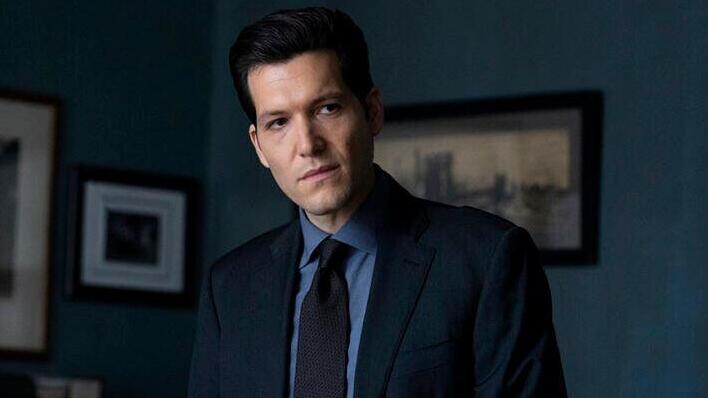A protagonist in a TV show who possesses complexity, sometimes known as an anti-hero, is one of the small screen's biggest revelations and also one of the hardest feats to achieve for writers. Characters straddling the line between good and evil, right and wrong - can elevate TV shows to new levels to make viewers relate them.
That is not the case for NBC streaming service Peacock TV's "The Calling" - a remake of the Israeli television crime drama show "Missing File." Its protagonist, the brilliant NYPD detective Avraham Avraham, despite the alluring duality his name at best only makes a serviceable star of a "what the hell did I just watch" piece of content.
The Calling - Trailer
(Video: Peacock TV)
The 2019 Missing File was based on Dror Mishani's novel of the same name. It focuses on Avraham, a studious and humble police officer with an affinity for detective novels, who attempts to solve a missing case involving a 16-year-old boy.
American television writer David E. Kelley, responsible for McBeal, Boston Legal and Chicago Hope, was tasked with writing the U.S. adaptation of the show, and might not have been the best move. The American Avraham has nothing in common with his Israeli counterpart. That would be fine, if he had something else that would make him unique and intriguing to watch. But, he does not.
He's the polar opposite of an anti-hero. He has no noticeable flaws or internal conflicts, and he is too polished to give us any access into his inner struggles that would otherwise shed some light on how he solves cases.
His sleek, doubt-free persona disengages us from what normally makes a great drama in a crime thriller. The mystery standing at the epicenter of The Calling is present and accounted for, but is devoid of any charm and precision that the novel's character possesses. To be frank, it's also devoid of pretty much anything else.
Israeli actor Jeff Wilbusch, who previously played Shira Haas' wayward brother in "Unorthodox," portrays Avraham in The Calling. He engages the Jewish faith from a different perspective - he relies on the Talmud to establish his investigative methods.
That, however, is never really shown in the series, other than the occasional pseudo-inspirational saying like "every man is a universe onto himself," followed by him manipulating his interrogation subject into submission with underhanded means in search of the holy grail of a confession. Avraham is the enigmatic troublemaker that now is also a religious Jew.
That character cliché encroaches on the entire show, which fails to intrigue or draw the viewer in. The characters feel flat, the dialogue is derivative and the whole thing just feels soulless. It's the kind of show you'd expect to be aired on a major network for a drowsy, disinterested audience, not an on-demand streaming service, which is considered to be a hub for out-of-the-box thinking and creativity.
The allure of Avraham, written so brilliantly in Mishani's novel and portrayed so well by Moris Cohen in the Israeli version, is nowhere to be found in the American adaptation. American Avraham is Sherlock Holmes-esque cliché who reaches insights by obsessively drawing fish (a habit that is as enigmatic as it is meaningless).
Him and his colleagues simply leapfrog any nuance in the investigation that could otherwise have led them immersing themselves in the complexity of the human condition, leaving the viewers with a feeling their times has been nothing but wasted.




